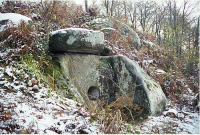
Notre Dame Cathedral. Image: Newsweek.com
On
Comment: At this date (4.15. 2019), no official evidence for arson in the case of the Notre Dame has been brought forward. TIME columnist Christopher J. Hale tweeted he was told it was no accident (see below)

Within ours, the French authorities announced they rule out arson or terrorism, and that they will conduce an investigation into “involuntary destruction caused by fire.”
How can arson be “ruled out for now” while the fire is still raging? why no investigation into possible arson?
PARIS (AP) — The Latest on a fire at Notre Dame Cathedral in Paris (all times local):
11:15 p.m.
The Paris prosecutors’ office says investigators are treating the blaze that destroyed part of Notre Dame as an accident for now.
The prosecutors’ office said late Monday they have ruled out arson in Monday’s fire, including possible terror-related motives for starting the blaze.
Prosecutors say Paris police will conduct an investigation into “involuntary destruction caused by fire.”
In 2018 alone, 875 FRENCH CATHOLIC CHURCHES DESECRATED.
France has seen a spate of attacks against Catholic churches since the start of the year, vandalism that has included arson and desecration.
Vandals have smashed statues, knocked down tabernacles, scattered or destroyed the Eucharist and torn down crosses, sparking fears of a rise in anti-Catholic sentiment in the country.
Last Sunday, the historic Church of St. Sulpice in Paris was set on fire just after midday mass on Sunday, Le Parisien reported, although no one was injured. Police are still investigating the attack, which firefighters have confidently attributed to arson.
Built in the 17th century, St. Sulpice houses three works by the Romantic painter Eugene de la Croix, and was used in the movie adaptation of The Da Vinci Code, by Dan Brown.
Last month, at the St. Nicholas Catholic Church in Houilles, in north-central France, a statue of the Virgin Mary was found smashed, and the altar cross had been thrown on the ground, according to La Croix International, a Catholic publication.
Also in February, at Saint-Alain Cathedral in Lavaur, in south-central France, an altar cloth was burned and crosses and statues of saints were smashed. The attack prompted Lavaur Mayor Bernard Canyon to say in a statement: “God will forgive. Not me.”
And in the southern city of Nimes, near the Spanish border, vandals looted the altar of the church of Notre-Dame des Enfants (Our Lady of the Children) and smeared a cross with human excrement.
Consecrated hosts made from unleavened bread, which Catholics believe to be the body of Jesus Christ, were taken and found scattered among rubbish outside the building.
Bishop Robert Wattebled of Nimes said in a statement: “This greatly affects our diocesan community. The sign of the cross and the Blessed Sacrament have been the subject of serious injurious actions.
“This act of profanation hurts us all in our deepest convictions,” he added, according to The Tablet, which reported that in February alone there had been a record 47 documented attacks on churches and religious sites.
The Vienna-based Observatory of Intolerance and Discrimination Against Christians in Europe, which was founded in cooperation with the Council of European Bishops Conferences (CCEE) but is now independent said there had been a 25 percent increase in attacks on Catholic churches in the first two months of the year, compared with the same time last year.
Its executive director, Ellen Fantini, told Newsweek that while in many cases the motive for the attacks was not known, France faced growing problems with anti-Christian violence, especially by anarchist and feminist groups.
“I think there is a rising hostility in France against the church and its symbols,” but “it seems to be more against Christianity and the symbols of Christianity.
“These attacks are on symbols that are really sacred to parishioners, to Catholics. Desecration of consecrated hosts is a very personal attack on Catholicism and Christianity, more than spray-painting a slogan on the outside wall of a church.”
She said that while France had a long tradition of secularism, it was seen as a culturally Christian country, and so any “attack on the church as a symbol of religion was also an attack on authority and patrimony.
Categories: Society, The Fall of Europe













![Kp-Index [0-3] Green - Stable/Calm Magnetosphere. [4] Yellow - Unstable Magnetosphere. [5+] Red - Geomagnetic Storm Conditions](https://firebasestorage.googleapis.com/v0/b/carrington-9.appspot.com/o/spaceWeatherNews%2FkpChart.png?alt=media)







https://ecawblog.wordpress.com/2019/04/22/better-safe-than-sorry/
LikeLike
they may rule out terrorism, but, intelligent are all disagreeing
LikeLike
Christianaphobia?
LikeLike